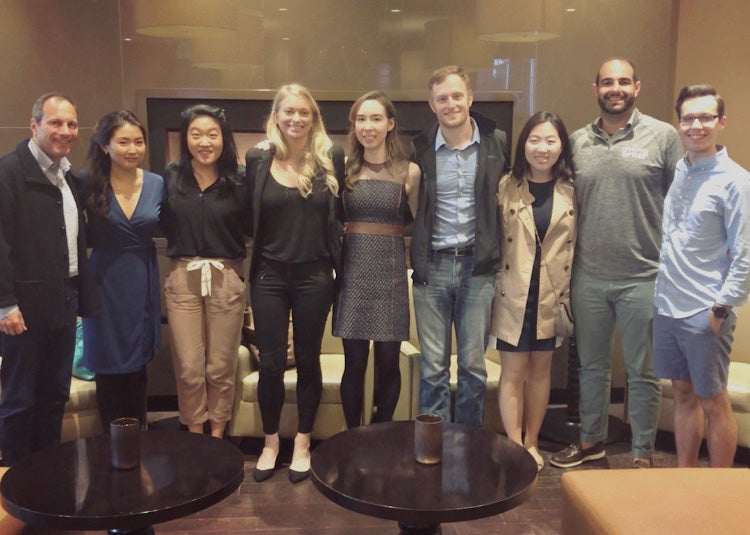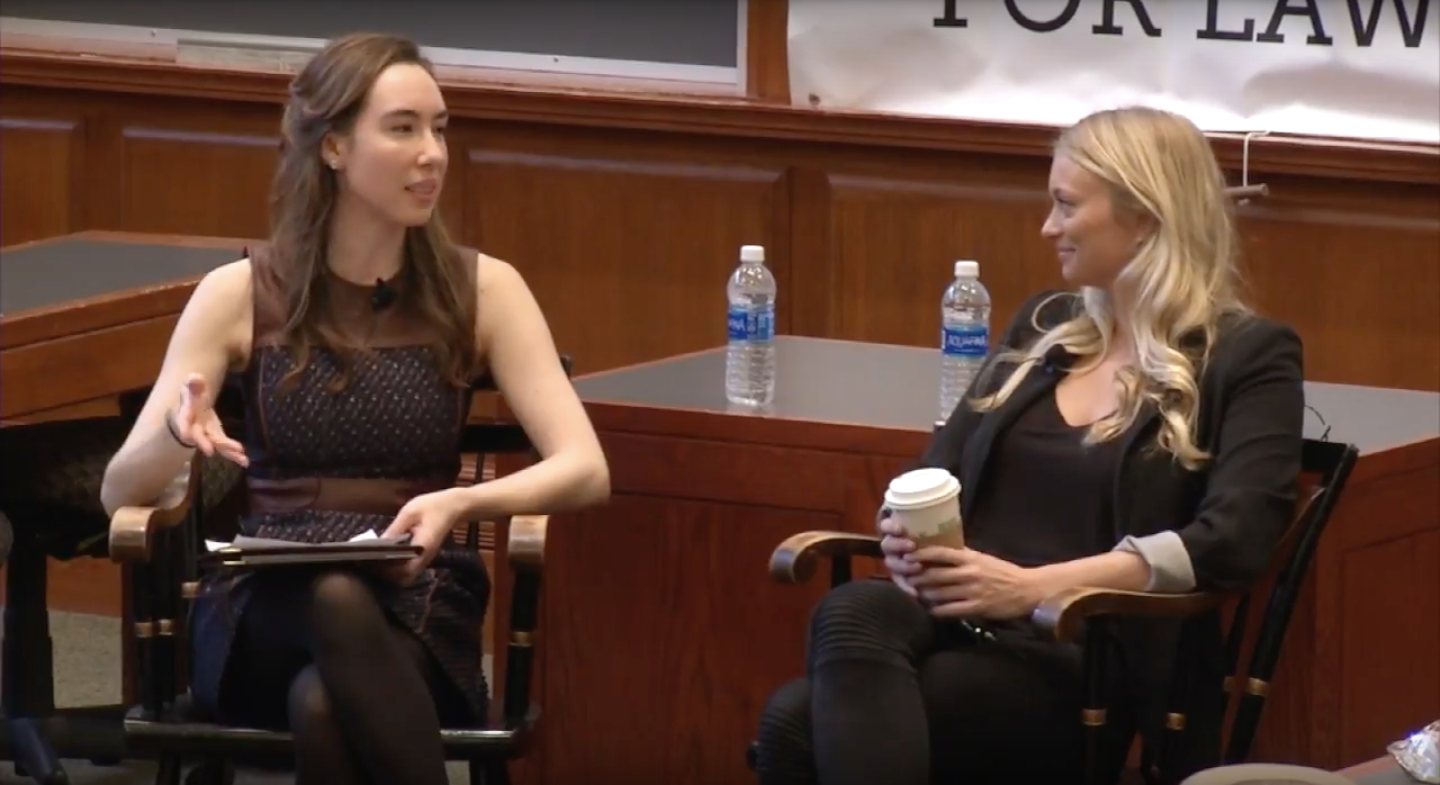Amanda Bradford, the founder and CEO of The League, a dating app aimed at ambitious young professionals, joined the Harvard Association for Law and Business (HALB) for a Q&A on Oct. 23. Elizabeth Ferrie ’19 moderated the discussion, which covered Bradford’s initial motivations for starting a dating app company, being a female CEO in Silicon Valley, and the app’s successes and strategies going forward.
The talk, held in Harvard Law School’s Austin Hall, drew more than 140 people from the law school, other Harvard schools, and the greater Boston community, including data scientists, and owners of app marketing agencies. The event, publicized on the app’s events page, drew interest from more than 600 Boston area users on The League.
Ferrie began the conversation by asking Bradford about her inspiration for founding The League. Bradford remarked that it was a combination of becoming single in the second year of graduate school after a five-year relationship and realizing that the existing platforms at the time, like Tinder, had shortcomings. Building upon the lessons she learned while spending her business school summer at the venture capital firm Sequoia Capital, Bradford predicted that it was a good time to launch a competitive product.
Hedging her bets, Bradford gave herself six months to ship the product, but also had a job offer lined up after graduation from Stanford’s Graduate School of Business in case the app was not successful. The app was officially launched in early 2015.
Raising the funding necessary to put her ideas into action, particularly as a female entrepreneur in Silicon Valley, was no easy feat. “It’s definitely an eye roll. You’re fundraising for a dating app. You’re a solo founder. You’re a girl—a blonde girl. It’s a very stereotypical situation, almost comical. But I found that women responded almost instantly; very successful women just got it,” Bradford said. After raising money largely from female investors during the early stages, she was able to get other venture capital firms on board.
Bradford said she sought to build a community where career-driven females were celebrated and the desire for egalitarian relationships was cultivated. In response to media criticism of the app as elitist, Bradford wrote an op-ed piece titled “I’m Not An Elitist, I’m Just An Alpha Female” that touted on the app’s mission of fostering power couples and highlighted the struggles women often face on other dating platforms where they are mainly judged for their looks. “It was stimulating to hear about how The League approaches the dating app market from a female perspective,” said audience member Joseph Yim ’20.
When Ferrie asked about the legal challenges The League has faced in its short history, Bradford recalled a PR stunt gone wrong when they launched the app in the London market. That incident involved using Amal Clooney’s image on the side of a bus without her permission. “It’s an interesting industry to consider going into, because there are a lot of legal challenges,” Bradford said.
Bradford advised students in the audience considering startup work in the future to surround themselves with the best-in-class people in the industry and get experience doing the unglamorous tasks that drive the company forward. Bradford’s work at Salesforce and Google taught her important lessons about product development, marketing, and building a strong internal culture that guide her as a CEO today.
The HALB sponsored talk left a strong impression on attendees and even shifted some perspectives. Jane Jeong ’18 remarked, “I was pretty skeptical of the app when it first came out, so our conversation helped me better contextualize The League as a valid business model. Amanda was really impressive; she’s sharp and refreshingly honest about the ups and downs of entrepreneurship and the vision she has for her company.”

Following the Q&A, Bradford joined HALB board members and Professor Scott Westfahl for a small group lunch. “Having entrepreneurs like Amanda share their insights here is incredibly valuable, especially for students interested in either starting their own business or working as emerging company lawyers,” Westfahl said. “The range of legal issues raised by her company’s business model is quite broad and you could sense the anxiety she feels about her need for quick, practical and reasonably priced legal advice. She didn’t say it directly but I’m sure she would agree that law schools and law firms should double down on their efforts to train lawyers to deliver real value more quickly and through a pricing model more aligned with how start-ups operate.”
